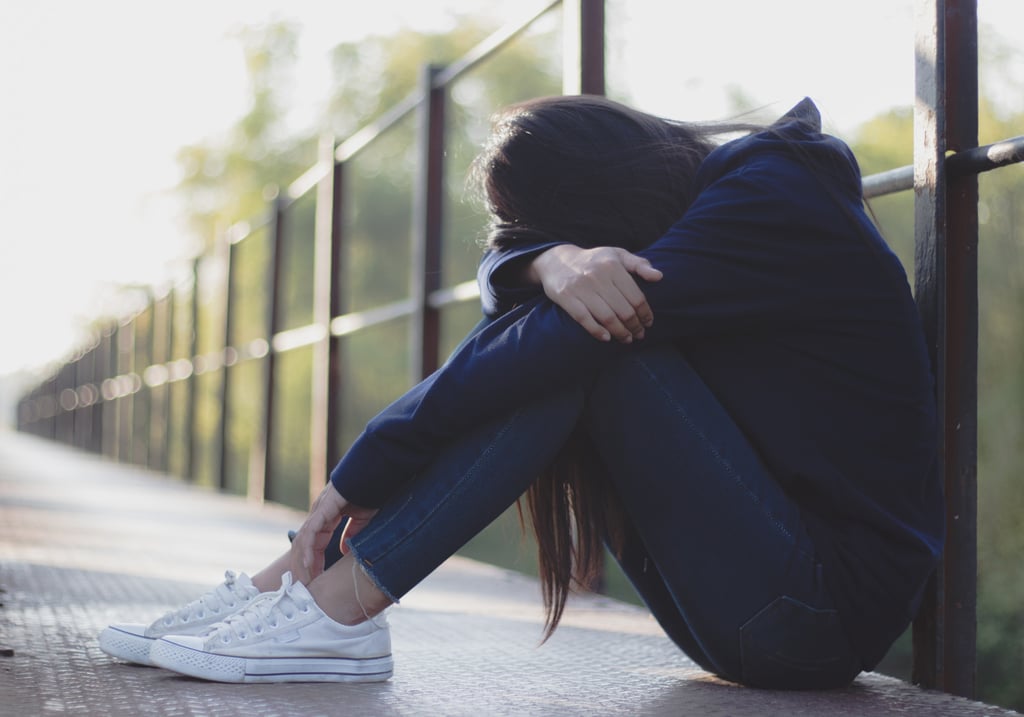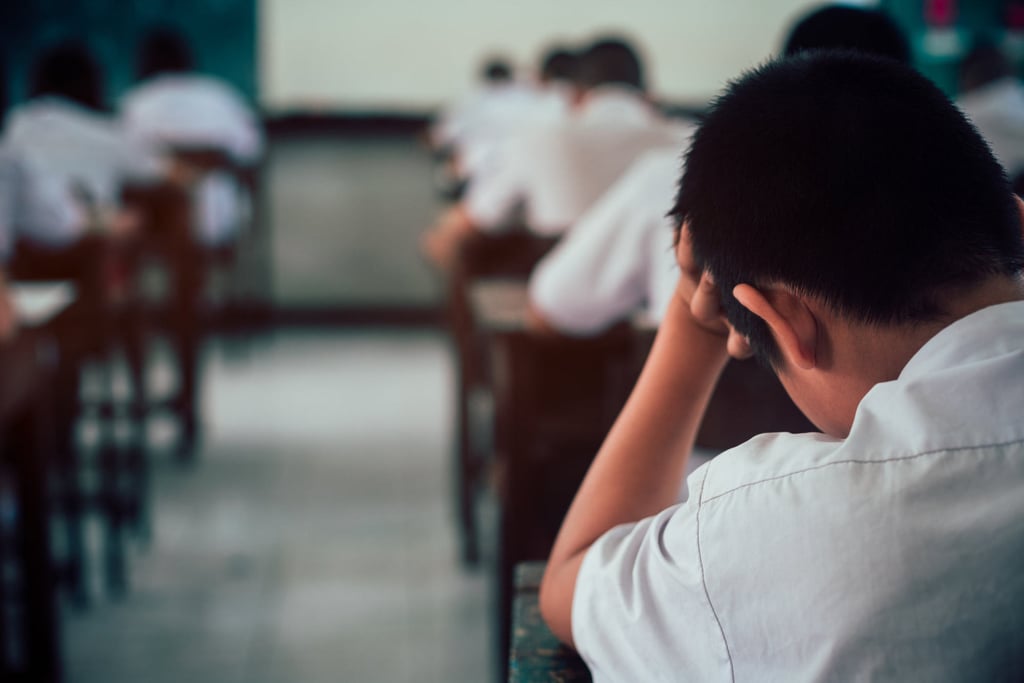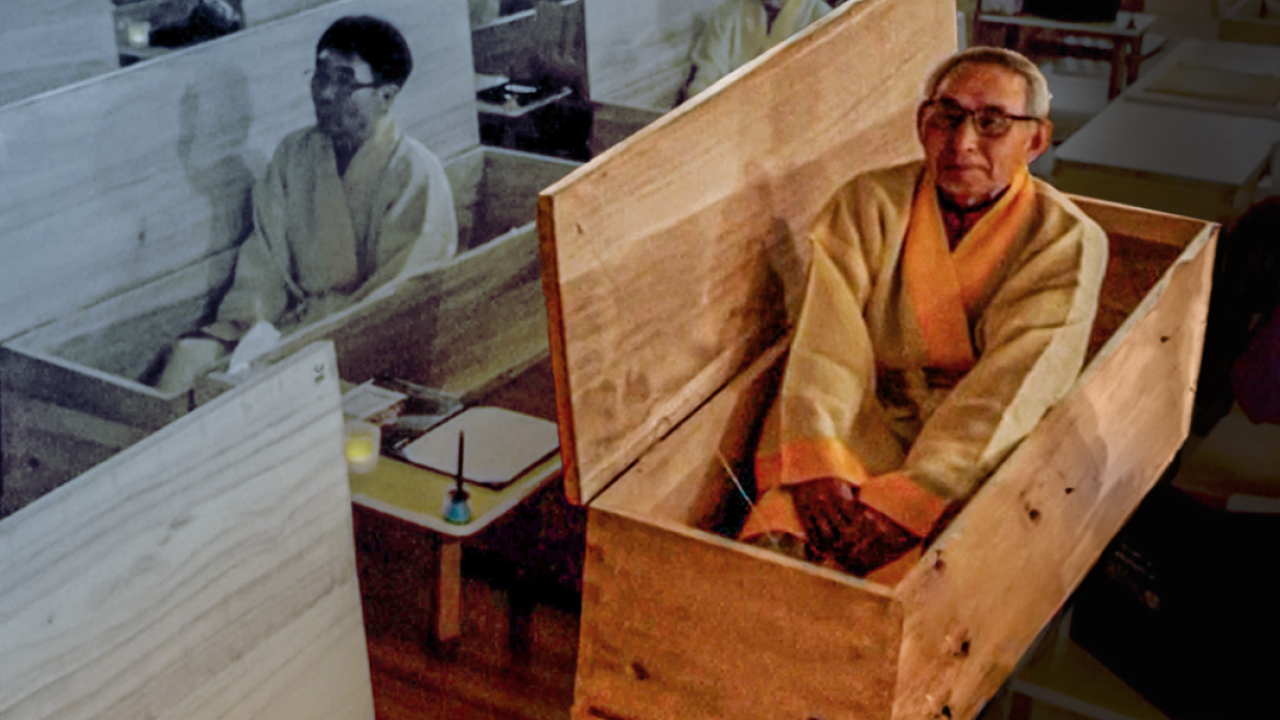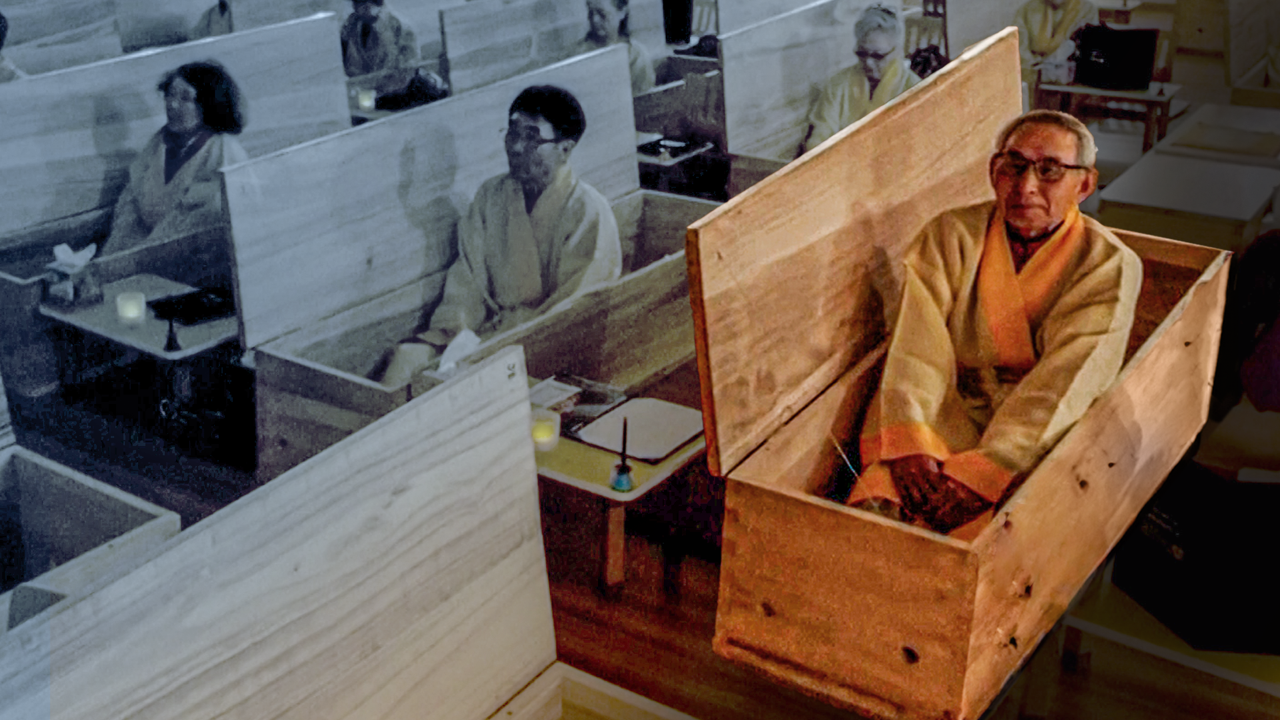The apparent murder-suicide of two Chinese students in Sydney has highlighted a growing mental health crisis among Australia’s international student community, with experts warning that cultural isolation and insufficient mental health support are fuelling a troubling trend.
Police revealed on Wednesday that university student Xiaoting Wang was stabbed in a flat, while another Chinese student, who has yet to be identified but is understood to have been living with Wang, was found dead at the bottom of the block of flats in Burwood, a suburb popular with the Chinese diaspora.
Police asked the public for more information while the local press indicated it was being investigated as a murder-suicide.
Suicides or attempted suicides among international students – including those from China, the largest group of foreign students in Australia – have become a worrying trend, experts say.

These tragedies prompted the Victorian state coroner to conduct three investigations between 2019 and 2023.
It is the only coroner in Australia with public records on such incidents. The coroner of New South Wales, home to the next biggest international student hub, does not publish such details and there are no other national figures publicly available.
In its inquest into the death of Chinese student Zhikai Liu who jumped from his 21st-floor flat in Melbourne in 2016, the Victorian coroner said there had been 27 suicides between 2009 and 2015.
In its last update in 2019, the coroner said between 2015 and 2019, there were 20 more such deaths, although it cautioned these incidents could still be under-reported.
The work of the Victorian coroner was enough to suggest these issues were not being resolved, despite the efforts of the government and education providers, said Samuel McKay, a research fellow in suicide prevention at the University of Melbourne’s Centre for Youth Mental Health.
“What’s clear is that the problem of suicide or suicide deaths isn’t going anywhere. We see problems or mental health issues increasing in young people generally,” he said.
“While we don’t have data specific to international students, we know that generally across the globe – so that’s both in Western and non-Western countries – there’s suggestions that this is an ongoing issue.”
Research suggests that given the disadvantages international students have in relation to or compared with domestic students, we can probably expect suicides to be greater in their community
Gaby Ramia, a professor at the University of Sydney’s School of Social and Political Sciences who has studied such cases, agreed, saying a lack of data didn’t mean the problems had stopped.
“All we can say is that research suggests that given the disadvantages that international students have in relation to or compared with domestic students, we can probably expect suicides to be greater in their community as opposed to domestic students,” he told This Week in Asia.
Public investigations so far – mainly from the Victorian coroner – revealed recurring themes of isolation, struggles with a new culture and language as well as pressures from keeping up with classes in a foreign country among international students.
A report commissioned by Canberra in 2020 following these inquiries also found that housing stress, experiences of bullying, discrimination and racism as well as threats to safety on public transport and the wider community had affected students’ mental health.
In search of support, many international students become involved in romantic relationships often suffering emotionally when they crumble. Few however seek professional help due to financial, language, and cultural hurdles.
Where are the problems?
Chinese-Australian graduate Mike Liu told This Week in Asia that he was particularly concerned after two suicide attempts by international students in his Melbourne building last October.
Information circulated on Chinese social media app WeChat revealed that one of the incidents involved an international student from China who jumped from his 26th floor flat after breaking up with his girlfriend.
The incidents come after another Chinese man – allegedly a student – jumped to his death from a nearby building a few weeks earlier, narrowly missing a construction worker before crashing into a busy road, according to reports on WeChat.
Liu said the Chinese students he knew – including former flatmates – regularly talked about contemplating suicide because of academic pressures, loneliness and failed relationships.
“You hear these stories every few weeks … and a lot of them were related to mental health issues, people who just don’t know where to go, and they don’t want to talk to their parents,” he said, adding he was lucky to have some family around him.

“In China, there was always a separate Chinese family member to talk to, or see every week at least.”
“Here they have no one.”
At the inquest into Zhikai Liu’s 2016 death, the Victorian coroner found that he faced language barriers with local students, was depressed because he did not understand his classes and was having relationship problems with his girlfriend.
In another investigation into five student deaths concluded by the Victorian coroner in 2023, a 24-year-old Chinese student who also jumped from his shared flat, tended to sleep all day, and rarely left his room. He took up online gaming and his girlfriend had initiated a break-up.
The problem didn’t just affect students from China although most victims were from Asia, the coroner said.
Among the other five victims was a Taiwanese student who took his own life after telling his mother he wanted to quit his studies in Melbourne and return home.
A student from Bangladesh hanged herself in 2020 after her university indicated it had to impose conditions on her enrolment after she failed several units and was forced to seek an extension of her student visa.
These cases were emblematic of a vicious trap that many of these students find themselves in, Mike Liu said.
Students faced immense pressure from their parents who often used all their savings to send them to university, Liu explained.
Despite a common Australian perception that international students were rich, some came with funds barely scraped together by their parents desperate to put them through tertiary education which was either not available or difficult to access at home, he said.
I lack any kind of social support to help me navigate aspects of this foreign culture I am completely new to … it’s exhausting
In addition, Asian students do not discuss mental health problems with their family for fear of being labelled as “lazy”, Liu adds.
Clues about the mental state of some of these students can be gleaned from anonymous posts on social media platforms like Reddit.
“[I] lack any kind of social support to help me navigate aspects of this foreign culture I am completely new to … it’s exhausting,” Reddit user abgry_krakow87said
A deeper study into the mental health of Chinese students in Australia undertaken by education and psychology academics at the University of Western Australia in 2023 summarised stresses experienced by these students as psychological, perceived safety and social isolation.
In the report, “Threats to the emotional well-being of mainland Chinese students studying in Australia”, one student found it hard to understand Australian English, which had a lot of “slang” and “riddles”.
“They also really like jokes, which sometimes I can’t understand … so I just faked laughing when others laughed. This means that it can be stressful to be in social situations here,” the student said.
Another said he was verbally attacked in the residential college he was living in and told: “You Chinese people really like cheating, don’t you?”
Others noted, that unlike in Asia, cities in Australia were darker at night and that made them feel less safe, and they felt the law protected Australians rather than foreign students when they reported crime.
In response to the Victorian coroner’s investigations, the state government established an International Students’ Wellbeing Taskforce which has been working with international students to identify ways to prevent suicide.

Its health department told This Week in Asia that it was making every effort to ensure every Victorian, including international students, can access the mental health and well-being support they needed.
That pledge joins several similar ones over the years including Canberra’s 2020 report, “International Students And Their Mental Health And Physical Safety”.
A 2020 Productivity Commission report on mental health called on educational institutions to provide counselling services that address the language and cultural diversity needs of their international students.
Long before that, in 2010, a parliamentary inquiry into suicide in Australia warned that international students were a group at risk due to “extreme isolation”.
Is it working?
But, these policies were not effective for several reasons, experts say.
Despite the commitment of the government and businesses, most services were either unavailable, insufficient, took too long to access due to a lack of funding, or were not tailored to the cultural needs of international students, McKay said.
“For instance, students might say ‘I feel sad’, but might not have that really broad emotional language to be able to speak to what that sadness is,” he said.
The director of Belong, a student accommodation provider, Jenny Jia, can attest to that.
She told This Week in Asia to uncover problems faced by students, it is better to approach international students directly, either by knocking on their doors or communicating on WeChat rather than telling them where to get help.
New research published last month by Ramia and his colleagues at the University of Sydney’s Sydney Centre for Healthy Societies said ultimately results were lacking because Canberra had “fallen short of compelling education providers” to take better care of international students.
“In the absence of binding government legislation, it is not currently known how many Australian universities have responded to these calls by developing comprehensive international students’ mental health strategies,” the report, “You’re on your own, kid”: A critical analysis of Australian universities’ international student mental health strategies, said
Little is known about if these policies were even developed and if they were, whether they had acknowledged the unique challenges facing international students, the report said.

Even policies that were developed presented poor mental health as an “individual problem” and did not address how governments and education providers could control external stress factors such as a lack of housing or expensive housing, it said.
They also ignored discrimination against international students or exploitation by landlords and have done little to eliminate the barriers that prevent students from seeking help, including not being informed of services or failure to address privacy or cost concerns, the report said.
“The result is a troubling dynamic whereby universities articulate concern for students in their care, but disavow ultimate responsibility for addressing the underlying societal factors that assemble or augment their mental health problems,” it said.
“On the surface, many of these challenges may seem inherent to the experience of relocating to a new country or may appear to be a consequence of individual vulnerabilities. Such an interpretation, however, overlooks the role of external environments in producing mental ill-health.”
These were not helped by comments by politicians that scapegoated international students, Ramia said.
In June, opposition leader Peter Dutton said migrants, including temporary ones like international students, caused housing shortages, road congestion, and strained public services.
Politics could negatively affect how students were treated on and off campus resulting in problems like discrimination and scorn, Ramia said.
But, ultimately, gaps persist due to the commercialisation of international students in Australia, which allows educational providers to commoditise students, Ramia said. International students are worth A$36 billion (US$24.2 billion) to Australia and is its fourth-largest export after minerals and resources.
“They behave a little bit like corporations, and corporations won’t really adhere to certain standards, unless they’re made to by law,” Gaby said.
Two-pronged problem
Yijia Ji, another international student studying at Monash University in Melbourne, said alienating politics and the myriad changes in visa rules in recent months have created more stress for students.
Like some students This Week in Asia spoke to, Ji was aware the problem was two-pronged, but said the overwhelming stigma surrounding mental health issues made it difficult for students to take the first step towards seeking help, she said.
She suggested hands-on and in-person classes that showcase the value of using mental health services as a way of “breaking the ice”.
“If we find it useful, then we’re going to continue using it, instead of just receiving information about it. Trouble is, there is no opportunity to just “try it out”,” she said.
Chinese law student Zhiqi Tang was trying a different approach.
He created a small private “7am club” of international students living in Melbourne to create a sense of “family”, starting each day with messages of “good morning” on social media at 7am before going to the gym or classes together.
While the group may not attract those who necessarily need help – and there are many students who are coping well – it reduces loneliness and keeps other problems like academic pressures at bay, he added.
“I just felt like I needed to do something that keeps me happy,” he said.
“I am doing a three-year degree. It is a marathon not a sprint, so I must make sure I get through it in a sustainable way.”
If you have suicidal thoughts or know someone who is experiencing them, help is available. In Hong Kong, you can dial 18111 for the government-run Mental Health Support Hotline. You can also call +852 2896 0000 for The Samaritans or +852 2382 0000 for Suicide Prevention Services. In the US, call or text 988 or chat at 988lifeline.org for the 988 Suicide & Crisis Lifeline. For a list of other nations’ helplines, see this page.



